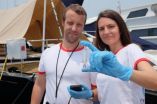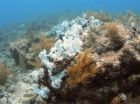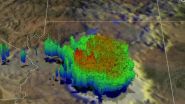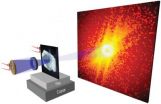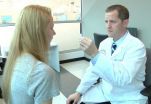(Press-News.org) Nanyang Technological University (NTU) is working with other international universities to build a global network of 'citizen scientists' on a free-to-access database for oceanographic data.
While much attention is placed on mammals and fish in the sea, it is the tiny, marine microbes that supports the nutrient cycle and forms the foundation of the food web. Known as the marine microbiome, they are the most abundant organisms in the ocean but also the least understood.
To gain a better understanding of such marine life and its environment, NTU scientists at the Singapore Centre on Environmental Life Sciences Engineering (SCELSE) has embarked on a pilot project to crowd-source the collection of oceanographic data globally.
The pilot project hopes to inspire other scientists to take advantage of the thousands of private yachts that sail around the world each year to become its floating microbial observatories. This is done by using simple scientific equipment attached to yachts to collect water samples and monitor the health of the world's oceans.
This large amount of data collected will be hosted and analysed at the University of Technology Sydney and made accessible to researchers worldwide and also the public.
To prove that crowdsourcing from citizen scientists can work, NTU Associate Professor Federico Lauro and his wife Ms Rachelle Jensen led a team of scientists from twelve international universities on a four-month-long expedition across the Indian Ocean to collect oceanographic data and biological samples.
Housing their scientific equipment and acting as both their transport and accommodation is the privately owned 18.5 metre-long Nautor Swan yacht, S/YIndigo V.
Captained by Prof Lauro, who was a national sailing champion in Italy and Australia, S/Y Indigo V started her 6500 nautical mile (12,000 km) journey in Cape Town, South Africa, sailing up to Sri Lanka before coming down the Straits of Malacca to Singapore.
Prof Lauro's team collected hundreds of samples containing invaluable data on bacteria, plankton and the marine eco-systems. These samples provided a more complete picture of the health of the Indian Ocean and its environmental conditions.
The team's scientific findings and details of the expedition were published yesterday in the international scientific journal, PLOS Biology.
"The ocean samples we collected will allow us to sequence the genes and genomes of the microbial population in the ocean, some of which were previously unknown to us," said Prof Lauro, an Italian-born oceanographer, who is teaching environmental sciences in NTU and also holds a concurrent appointment at the University of New South Wales.
By having a common database of such new information, scientists will be able to analyse the role the microbial population plays in ocean geochemistry. It will help develop advanced ocean health models, which will lead to scientifically-based preservation of this valuable resource. For example, such models could also be used to predict the spread of toxins or pathogens and even the spread of antibiotic resistance in bacteria.
"With our successful voyage, we have also proven that it is indeed possible for recreational sailors who are not scientifically trained to help collect data about our oceans," said Prof Lauro.
How the oceanographic data is collected
To help volunteer sailors with their data collection, there will be a rugged box containing all the instrumentation needed to collect biological samples and to measure physical parameters like temperature, conductivity and depth, as well as weather conditions.
This automated prototype device, now being developed by Indigo V Expeditions, is slated to be ready by early 2015. The device will make it easy for volunteers to participate in citizen oceanography. After the yacht reaches his or her next port, a volunteer will collect the device for use by another participant.
The device will also come with a small solar panel for energy collection to recharge its batteries, and a satellite connection to transmit data or an emergency distress signal.
Low cost, high yield
The main driving factor to get the oceans mapped and analysed through crowd sourcing is the high cost of operating a scientific oceanographic vessel.
The average daily cost of operating a scientific vessel can cost up to USD $30,000, and such an expedition usually lasts for months. Mapping all the oceans on Earth would require about 20 such ships over two and a half years at an estimated costs of USD $300 million. This would still not yield any data from higher and lower latitudes or remote areas such as the Indian Ocean.
In comparison, the Indigo V Expedition Indian Ocean pilot project cost the team only USD $75,000 over four months. The global network envisaged by the scientists has the potential to tap on more than 5,000 yachts sailing on the oceans annually on popular routes.
Prof Lauro, who is also the Director of Indigo V Expeditions, believes that with the help of these recreational sailors, consistent data points with multiple samples can be established, leading to more reliable scientific data at only a fraction of the cost.
"Moving forward, some of the things we can do include assessing the environmental impact of ships in the shipping lanes, how climate change affects the ocean and how bacteria and viruses get transported from one part of the world to another," said the experienced microbiologist.
INFORMATION:
Indigo V Expeditions, started in 2013, is jointly supported by the NTU research team at SCELSE, the ithree Institute (University of Technology Sydney, Australia), the Costerton Biofilm Center (University of Copenhagen, Denmark), BABS (University of New South Wales, Australia), the Australian Research Council, the Natural Sciences and Engineering Research Council of Canada and the Desert Research Institute (Nevada, USA).
Media contact:
Lester Kok
Senior Assistant Manager
Corporate Communications Office
Nanyang Technological University
Tel: 6790 6804
Email: lesterkok@ntu.edu.sg
About Nanyang Technological University
A research-intensive public university, Nanyang Technological University (NTU) has 33,500 undergraduate and postgraduate students in the colleges of Engineering, Business, Science, Humanities, Arts, & Social Sciences, and its Interdisciplinary Graduate School. It has a new medical school, the Lee Kong Chian School of Medicine, set up jointly with Imperial College London.
NTU is also home to world-class autonomous institutes – the National Institute of Education, S Rajaratnam School of International Studies, Earth Observatory of Singapore, and Singapore Centre on Environmental Life Sciences Engineering – and various leading research centres such as the Nanyang Environment & Water Research Institute (NEWRI), Energy Research Institute @ NTU (ERI@N) and the Institute on Asian Consumer Insight (ACI).
A fast-growing university with an international outlook, NTU is putting its global stamp on Five Peaks of Excellence: Sustainable Earth, Future Healthcare, New Media, New Silk Road, and Innovation Asia.
Besides the main Yunnan Garden campus, NTU also has a satellite campus in Singapore's science and tech hub, one-north, and a third campus in Novena, Singapore's medical district.
For more information, visit http://www.ntu.edu.sg
NTU partners international universities to build a network of citizen oceanographers
2014-09-10
ELSE PRESS RELEASES FROM THIS DATE:
Residual hydraulic fracturing water not a risk to groundwater
2014-09-10
Hydraulic fracturing -- fracking or hydrofracturing -- raises many concerns about potential environmental impacts, especially water contamination. Currently, data show that the majority of water injected into wells stays underground, triggering fears that it might find its way into groundwater. New research by a team of scientists should help allay those fears.
In a paper published in the current issue of the Journal of Unconventional Oil and Gas Resources, Terry Engelder, professor of geosciences, Penn State; Lawrence Cathles, professor of earth and atmospheric sciences, ...
Penn research shows how brain can tell magnitude of errors
2014-09-10
University of Pennsylvania researchers have made another advance in understanding how the brain detects errors caused by unexpected sensory events. This type of error detection is what allows the brain to learn from its mistakes, which is critical for improving fine motor control.
Their previous work explained how the brain can distinguish true error signals from noise; their new findings show how it can tell the difference between errors of different magnitudes. Fine-tuning a tennis serve, for example, requires that the brain distinguish whether it needs to make a ...
Ocean warming affecting Florida reefs
2014-09-10
ST. PETERSBURG, Fla.— Late-summer water temperatures near the Florida Keys were warmer by nearly 2 degrees Fahrenheit in the last several decades compared to a century earlier, according to a new study by the U.S. Geological Survey.
Researchers indicate that the warmer water temperatures are stressing corals and increasing the number of bleaching events, where corals become white resulting from a loss of their symbiotic algae. The corals can starve to death if the condition is prolonged.
"Our analysis shows that corals in the study areas are now regularly experiencing ...
Networking can make some feel 'dirty,' says new study
2014-09-10
Toronto – If schmoozing for work leaves you with a certain "ick" factor, that's not just awkwardness you're feeling.
Professional networking can create feelings of moral impurity and physical dirtiness, shows a new study.
That can hold people back from networking more, reducing career opportunities and lowering job performance, says study co-author Tiziana Casciaro, an associate professor of organizational behaviour and human resource management at the University of Toronto's Rotman School of Management. The study was co-written with fellow researchers Prof. Francesca ...
New evidence points to outcomes and cost benefits of telemedicine
2014-09-10
New Rochelle, NY, September 10, 2014—Congestive heart failure, stroke, and chronic obstructive pulmonary disease (COPD) are three of the leading causes of death in the U.S. The use of telemedicine to help manage chronic diseases such as these can yield clear benefits including fewer and shorter hospital stays, fewer emergency room visits, less severe illness, and even fewer deaths, as reported in a study published in Telemedicine and e-Health, a peer-reviewed journal from Mary Ann Liebert, Inc., publishers. The article is available free on the Telemedicine and e-Health ...
Halving the risk of preterm birth for some twin pregnancies
2014-09-10
International research involving the University of Adelaide has found that the risk of preterm birth could be halved for a specific group of "super high-risk" twin pregnancies.
The results could help to save babies' lives throughout the world and prevent serious health complications after birth.
The study, involving researchers from the University of Adelaide's Robinson Research Institute, reviewed all of the previous large studies conducted into the use of progestogen hormones, which have been trialed over the past 10 years to help prevent preterm birth in twins. ...
NASA tracks Norbert moisture to Arizona's drenching thunderstorms
2014-09-10
VIDEO:
This simulated flyby of NASA's TRMM satellite on Sept. 8 saw rain falling at a rate of over 62 mm (2.4 inches) per hour in some downpours over Arizona. Some...
Click here for more information.
Post-tropical storm Norbert may have been centered a couple of hundred miles off the northwestern coast of Mexico's Baja California, but the flow of warm, moist air that spun around it generated drenching thunderstorms over Arizona. NASA's TRMM satellite saw Norbert's remnants and ...
Where to grab space debris
2014-09-10
Objects in space tend to spin — and spin in a way that's totally different from the way they spin on earth. Understanding how objects are spinning, where their centers of mass are, and how their mass is distributed is crucial to any number of actual or potential space missions, from cleaning up debris in the geosynchronous orbit favored by communications satellites to landing a demolition crew on a comet.
In a forthcoming issue of the Journal of Field Robotics, MIT researchers will describe a new algorithm for gauging the rotation of objects in zero gravity using only ...
Advanced light source sets microscopy record
2014-09-10
A record-setting X-ray microscopy experiment may have ushered in a new era for nanoscale imaging. Working at the U.S. Department of Energy (DOE)'s Lawrence Berkeley National Laboratory (Berkeley Lab), a collaboration of researchers used low energy or "soft" X-rays to image structures only five nanometers in size. This resolution, obtained at Berkeley Lab's Advanced Light Source (ALS), a DOE Office of Science User Facility, is the highest ever achieved with X-ray microscopy.
Using ptychography, a coherent diffractive imaging technique based on high-performance scanning ...
Missing piece found to help solve concussion puzzle
2014-09-10
PITTSBURGH, Sept. 10, 2014 – Researchers at UPMC and the University of Pittsburgh have created a new, 5- to 10-minute test that could be added to a clinician's concussion evaluation toolkit for a more comprehensive assessment of the injury.
In a recent study published online first by the American Journal of Sports Medicine, researchers from the UPMC Sports Medicine Concussion Program demonstrated that clinicians could use their novel Vestibular/Ocular Motor Screening (VOMS) examination to be 90 percent accurate in identifying patients with concussion. The VOMS, which ...
